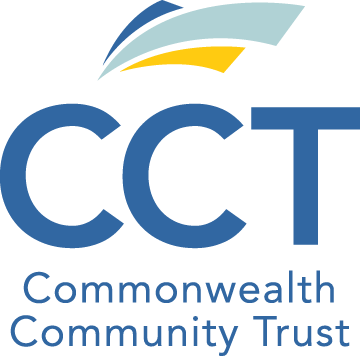CCT - Serving the Community Since 1990
Pooled Trust Administration
Pooled Trust Administration
Nationwide Nonprofit
Our mission is to enrich the lives of individuals throughout the United States
who are vulnerable or have a disability.

Welcome
Thank you for visiting our website to learn more about Commonwealth Community Trust (CCT). It has been my honor to lead this organization since 2000.
CCT is client-centered. Our professional and knowledgeable staff are focused on clients’ needs and serve with empathy and integrity. We take great pride in knowing that our services help our clients and provide their loved ones with peace of mind – this is what motivates my staff and me every day.
Please take a moment to learn more about CCT services.
– Joanne Marcus, MSW, President & CEO of CCT
First-Party Pooled
Special Needs Trust
Established with the beneficiary’s own funds, usually as a result of a personal injury or workers’ compensation claim or Social Security back payment.
Third-Party Pooled
Special Needs Trust
Established by a parent, relative, or friend, and can be coordinated with an estate plan, insurance policy, or gift.
Settlement Preservation Pooled Trust
Established with the beneficiary’s own funds as a result of a personal injury award for the benefit of a vulnerable individual or minor.
Military Survivor Benefit Plan First-Party Pooled Special Needs Trust
Established with annuity payments from the Survivor Benefit Plan for the benefit of a dependent child who has special needs.

How can a Pooled Trust help you?
CCT is committed to providing:
- A cost-effective, efficient, and convenient way to set aside funds
- Opportunity for beneficiaries to have an improved quality of life
- Expert knowledge of the ever-changing rules governing Medicaid and Supplemental Security Income (SSI) to protect benefit eligibility
- Potential for growth over time as the funds are “pooled” for investment purposes
- Low funding requirement and administrative fees
- Trustworthy and experienced staff who are sensitive to the needs of our beneficiaries
- An opportunity for Grantors to provide their vision for the trust
“Starting a CCT Special Needs Trust for my daughter was very easy and straight forward. Every person I have spoken to over the past several years has been courteous, knowledgeable and answers all of my questions (I always have a lot of questions) lol. Having this trust has allowed my daughter to keep her disability payments in place as well as the programs she needs to help her navigate life and be able to enjoy fun things like a Disney Cruise!” – Sherry, Mother and Advocate of a CCT Beneficiary (pictured)
The Basics
-
What is a Pooled Trust?
A pooled trust refers to a unique trust structure when there is one Master Trust Agreement but multiple beneficiaries. The beneficiaries each have their own sub-account that is set up by completing the Joinder Agreement, the legal document to join. The funds in the sub-accounts are pooled for investment purposes. The Beneficiary and their advocate(s) have access to financial information through the CCT secure online portal, mobile app, and by mail upon request.
-
Who is an Advocate?
An advocate is an important part of the Beneficiary’s team and works closely with CCT. An Advocate is authorized to make disbursement requests by signing and submitting the Payment Request Form to CCT and may receive confidential financial information about the Beneficiary’s sub-Account.
The Beneficiary may be their own Advocate and CCT strongly recommends having multiple Advocates if that is possible. Advocates are usually named by the Grantor(s) on the CCT Joinder Agreement, and may be the Beneficiary, a Guardian, Conservator, Power of Attorney, family member, case worker, friend, and/or someone who is trusted and familiar with the needs of the Beneficiary. Over time, Advocates can be added or removed by CCT in consultation with the other Advocate(s).
However, while CCT looks to the Advocate(s) for information regarding the Beneficiary, CCT has sole discretion to decide what distributions are in the Beneficiary’s best interest and permitted under the terms of the trust, as well as when to share information. he Advocate(s) is an important part of the Beneficiary’s team and works closely with CCT staff. The Advocate(s) is authorized to make disbursement requests by signing and submitting the Payment Request Form to CCT and may receive confidential financial information about the Beneficiary’s sub-Account.
The Advocate(s) is usually named by the Grantor(s) on the CCT Joinder Agreement (the legal document to join the trust), and may be the Beneficiary, a Guardian, Conservator, Power of Attorney, family member, case worker, friend, and/or someone who is trusted and familiar with the needs of the Beneficiary.
However, CCT has sole discretion to decide what distributions are in the Beneficiary’s best interest and permitted under the terms of the trust, as well as when to share information.
-
What is the Remainder Policy?
After the customary CCT administrative fees, Capital First Trustee fees and True Link Financial Advisors, LLC, investment management fees are disbursed the remaining funds are distributed as designated in the Joinder Agreement, the legal document to join. The links above will explain the remainder policy for each type of trust.
-
What is a Sub-Account?
A sub-account refers to the account holding funds for an individual Beneficiary. Funds deposited into this sub-account are used solely for that Beneficiary. The sub-account is governed by the terms of the CCT First-Party Pooled Special Needs Trust Master Trust Agreement and the completed Joinder Agreement, which states what will happen to any remaining funds if the Beneficiary passes away.
Nancy, Grandmother and Advocate of a CCT Beneficiary
"CCT has been wonderful in serving the financial needs of my grandson. They are always prompt in answering questions and suggesting how we can make something happen for him. He just turned 18 this year and we still plan on using this service." — Nancy, Grandmother and Advocate of a CCT Beneficiary

Holly, CCT Beneficiary
The first-person special needs trust, and the people who help manage the trusts, has been such a blessing. The combination has lifted a huge weight from my shoulders[.] — Holly, CCT Beneficiary
James, CCT Beneficiary
[I]t is people like you, who help those of us with disabilities which keeps us from living what would be “normal” lives, that is a blessing and gift that goes unseen, unheard of, and unrecognized. You make everyday tasks that most people take for granted but to me are frightening and debilitating and make them […]
Elaine, CCT Beneficiary
CCT has been a blessing and one of the smartest moves I’ve made. They are always there to help you with any questions you may have. I was able to purchase a new car and had work done on my house. I have a very blessed life, and CCT contributes to that[.] — Elaine, CCT […]
Grandmother of Beneficiary Kobe
"CCT made getting the wheelchair equip van we so much needed for our grandson the easiest purchase ever. Thank you CCT!!!" — Grandmother of Beneficiary Kobe
Rhonda, Mother and Advocate of a CCT Beneficiary
"CCT has been amazing. Very helpful with guiding us through this process." — Rhonda, Mother and Advocate of a CCT Beneficiary
Nancy, Grandmother and Advocate of a CCT Beneficiary
"CCT has been wonderful in serving the financial needs of my grandson. They are always prompt in answering questions and suggesting how we can make something happen for him. He just turned 18 this year and we still plan on using this service." — Nancy, Grandmother and Advocate of a CCT Beneficiary
Holly, CCT Beneficiary
The first-person special needs trust, and the people who help manage the trusts, has been such a blessing. The combination has lifted a huge weight from my shoulders[.] — Holly, CCT Beneficiary
CCT
Trusts
Professionals
Clients

*Disclaimer Statement: CCT is not a chartered bank or trust company, or depository institution. It is not authorized to accept deposits or trust accounts and is not licensed or regulated by any state or federal banking authority.
All Rights Reserved | Commonwealth Community Trust




